What do adult guppies eat? That’s what you need to know if you plan on adding some of these brightly colored livebearers to your tank.
Can you make homemade food for guppy fish? What vegetables can guppies eat? And can guppy fish eat betta food?
Read this guide to learn more about the best food for guppy fish!
What Do Wild Guppies Eat?
In the wild environment, guppies are omnivores, feeding on insect larvae, invertebrates, small water-bound insects, plant matter, algae, and detritus.
What Do Guppies Eat In Captivity?
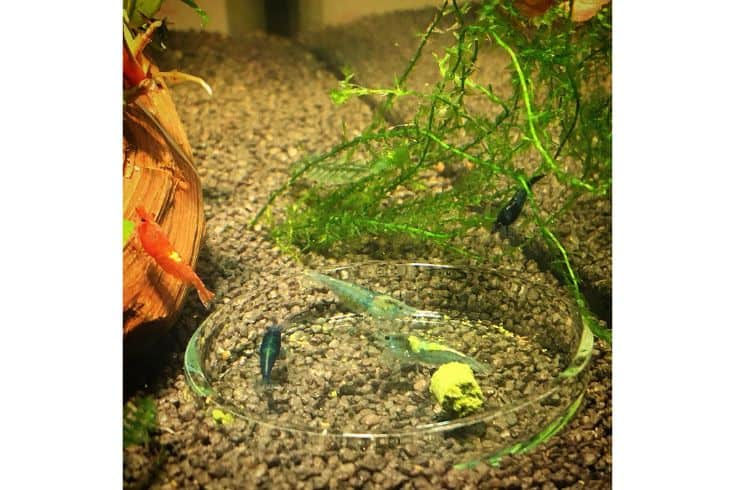
In captivity, adult guppies can do very well on a high-quality, balanced diet comprising a variety of foods, including fish flakes, frozen meaty foods, and fresh veggies as a treat. You can also offer freeze-dried food to guppies.
Commercial Fish Food
Commercially produced fish food is cost-effective, convenient, and nutritionally complete and should be fed as the main part of your guppies’ daily diet.
Ultra-Fresh Royal Guppy Mignon Pellet
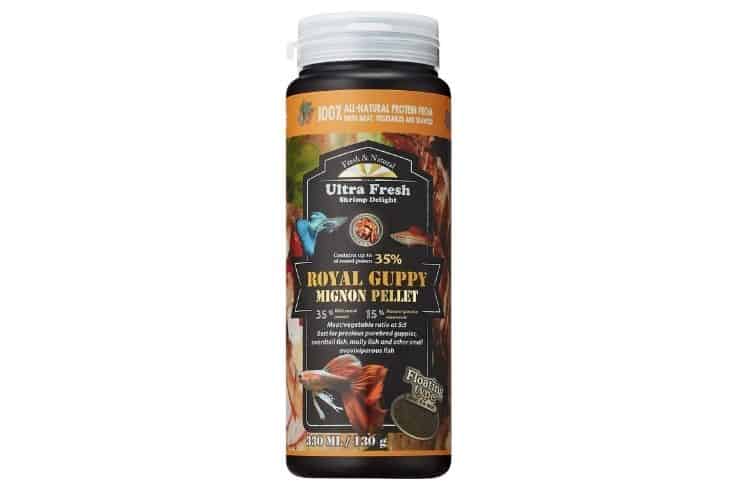
These guppy pellets are formulated with high-quality ingredients with added beneficial vitamins that keep your fish in great health and vibrant color. In addition, this food doesn’t contain nutritionally deficient fillers.
Hikari USA Tropical Fancy Guppy Food
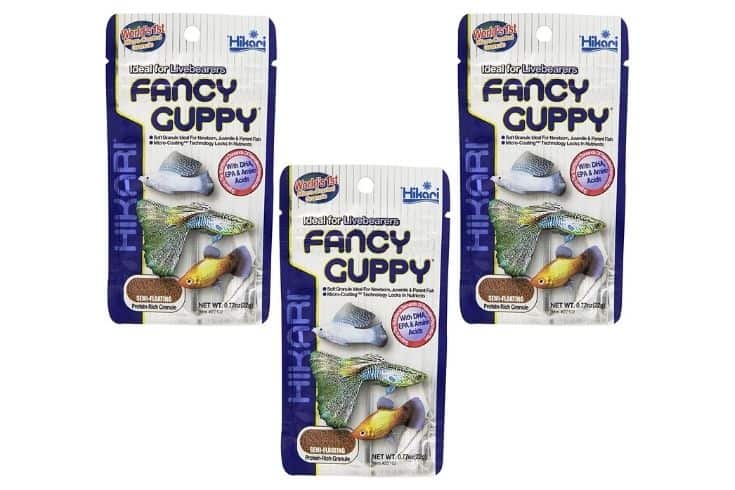
Hikari is a world-renowned producer of quality fish food and has been around for over a century. This fancy guppy food is made using the best quality ingredients to give your fish everything they need to be healthy and thrive.
TetraMin Nutritionally Balanced Tropical Flake Food
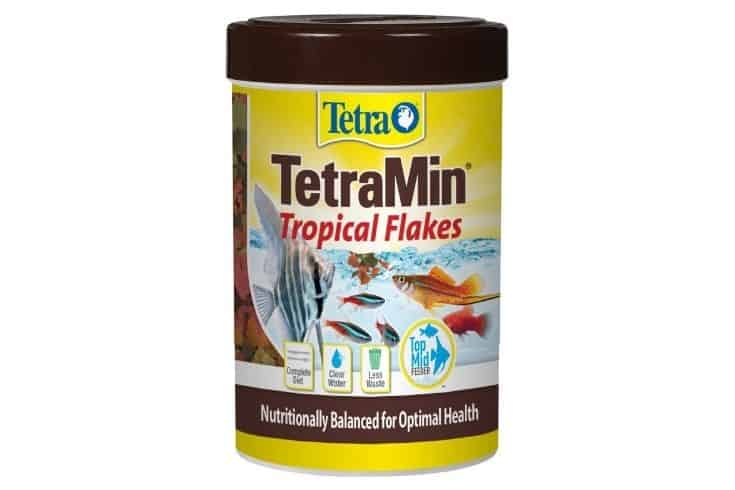
TetraMin makes excellent quality fish food that I can vouch for from personal experience!
I’ve used TetraMin foods for my fish for many years, and I love that the food contains no artificial colors, flavors, or preservatives. The food brings out the best colors in your guppies and keeps them lively and breeding prolifically, too!
Insects
Insects form a large part of the wild guppy’s diet, and you can replicate that in the captive environment. If you don’t want to use live insects, frozen ones are just as good.
Mosquito Larva
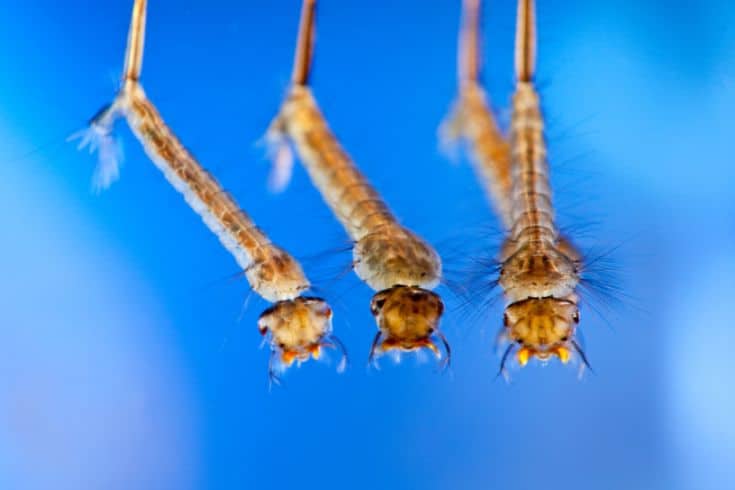
Mosquito larvae provide a rich protein source for your guppy fish and can add variety to your pets’ diet.
You can buy these aquatic insect larvae online or catch them yourself by creating a mosquito breeding trap. Wait for the larvae to develop, then scoop them out and feed them to your guppies.
Brine Shrimp
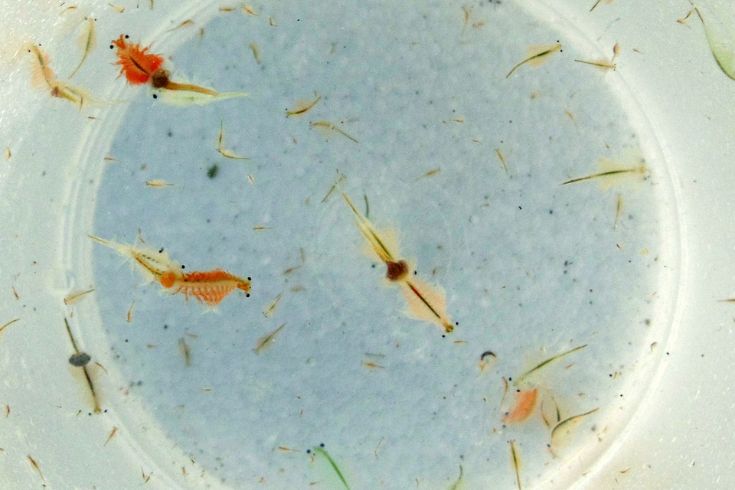
You can buy adult brine shrimp from most fish stores or raise them yourself in a home hatchery.
Micro Worms
Micro worms are nematodes in the Panagrellus genus. These tiny wrigglers are the perfect size for baby guppies to cope with, and you can raise them yourself to save money and provide a ready supply for your fish.
Fruit Flies
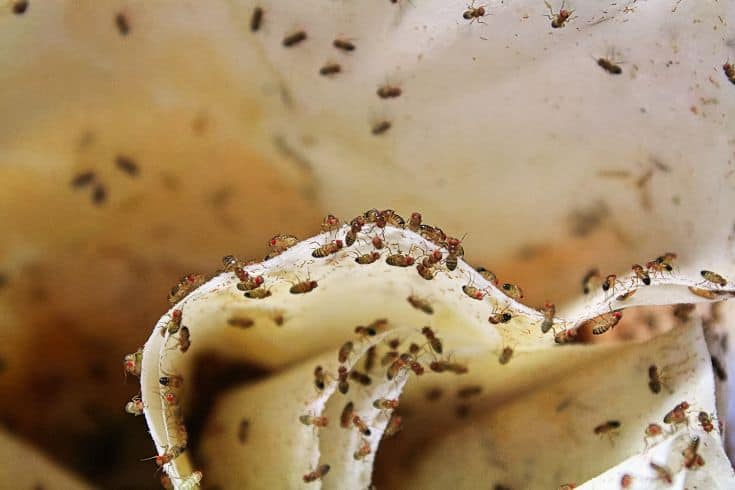
Fruit flies invade your home during the summer months, but these pesky critters make a great source of protein for guppies.
The tiny insects are easy to culture at home. All you need is a container, some overripe fruit, and patience!
Daphnia
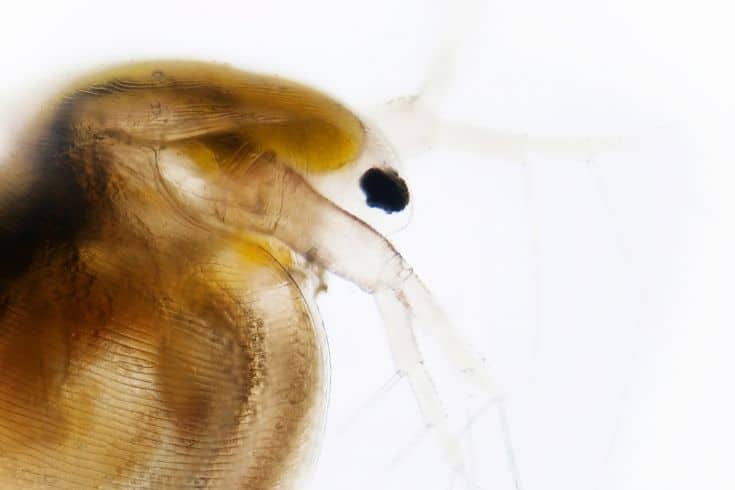
Daphnia are small, planktonic crustaceans that you can buy in most fish stores.
Baby guppies can do well on the extra protein content provided by daphnia, and adults seem to enjoy the hunting experience of chasing after the tiny crustaceans.
Vinegar Eels
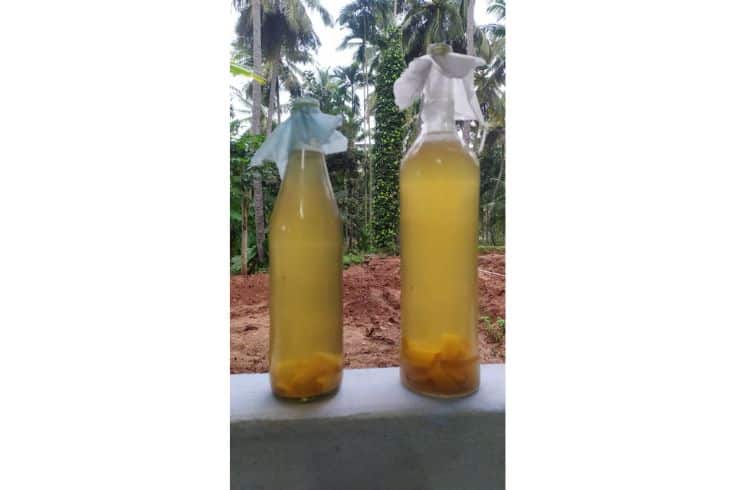
Vinegar eels are a species of roundworm that feed on a substance called the Mother of Vinegar. You can buy vinegar eels online or culture them relatively easily at home if you have the time.
Human Foods Guppies Can Eat
In addition to commercial foods and insects, guppies can eat some human foods, including the following:
Vegetables and Fruits
You can feed vegetables to guppies to provide nutrients and fiber for your hungry fish. Fruits and veggies make excellent homemade fish food, too.
When offering human foods to your guppies, take care to remove uneaten food from the tank so that it doesn’t decompose and pollute the water.
Cucumber
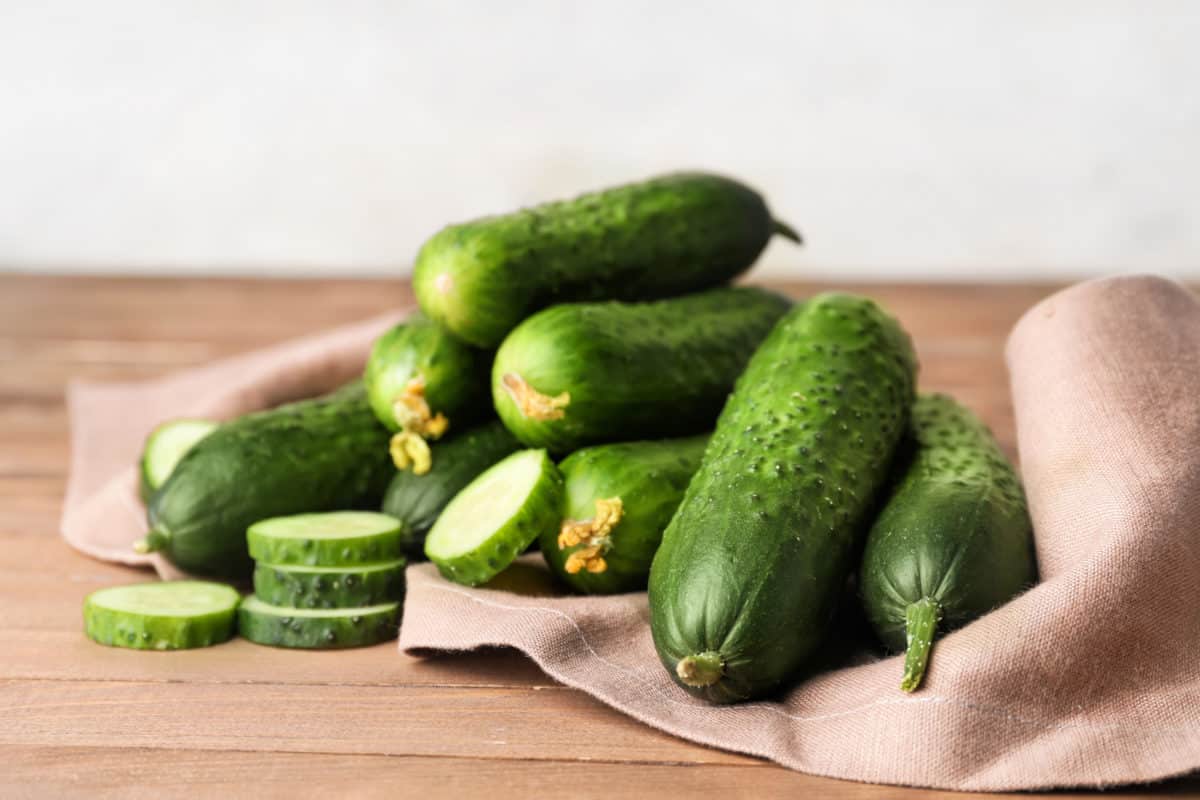
Cucumber is made up of 96% water, making them easy to digest for your fish while being an excellent protein source.
Zucchini
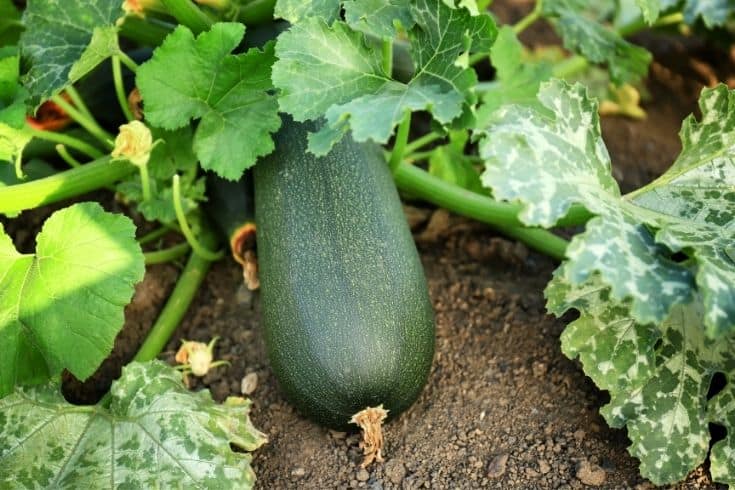
Many pet fish love zucchini, and the vitamins and potassium it contains are excellent for your fish’s health. Zucchini also contains more fiber than cucumber, so you don’t need to feed as much of it to your fish.
Tomatoes

Tomatoes contain vitamin C, potassium, and folate, making them a good source of nutrition for guppies, although you must remove the seeds and stem before feeding as that can be harmful to the fish.
Lettuce

Lettuce is popular with many aquarium fish and can be used to provide plant matter for omnivorous species. Stick to feeding soft-leafed varieties, and fix the lettuce to the tank glass with a veggie clip or algae magnet.
Spinach
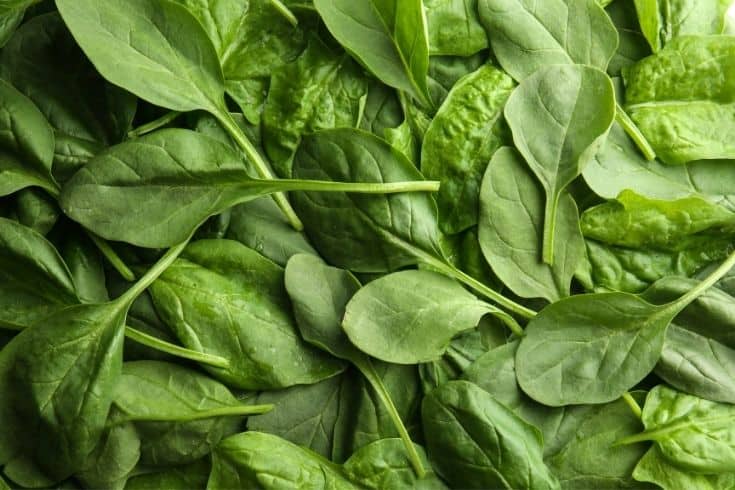
Spinach is packed with vitamins A and C, and it’s also rich in iron. Feed your juvenile guppies this leafy green vegetable in moderation to boost growth.
Kale
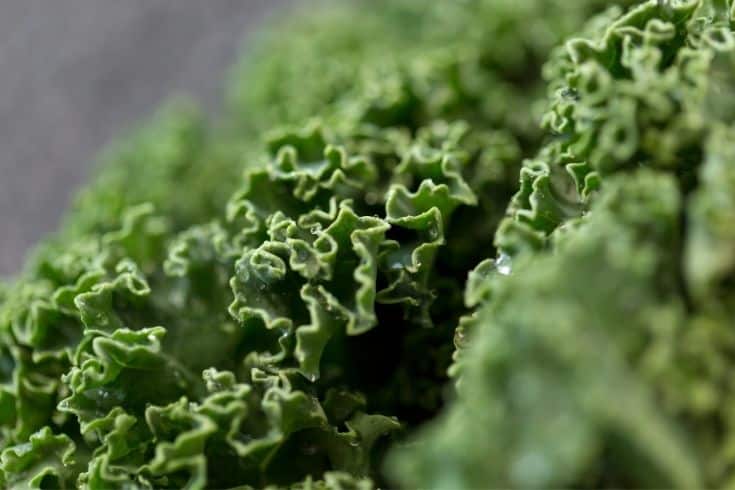
Kale is packed with vitamins A, C, and K, as well as iron and calcium, helping to keep your guppies strong and healthy and protecting their immune system.
Remove the tough stems before feeding kale to your fish, as they can be difficult to digest, and chop the leaves into tiny pieces so that they’re easier to eat.
Peas
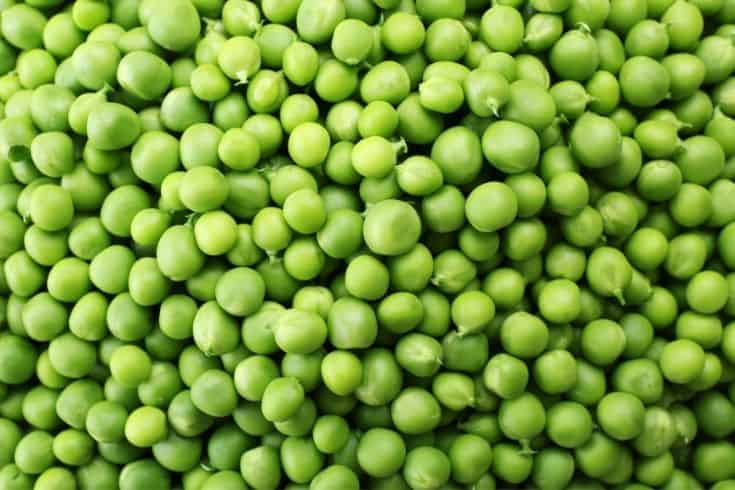
Boiled peas are excellent for relieving constipation in tropical fish but also offer many health benefits, being rich in vitamins A and C, fiber, and iron.
To feed this nutritious treat to your guppies, simply thaw a frozen pea, remove the skin, and drop it into your tank.
Corn
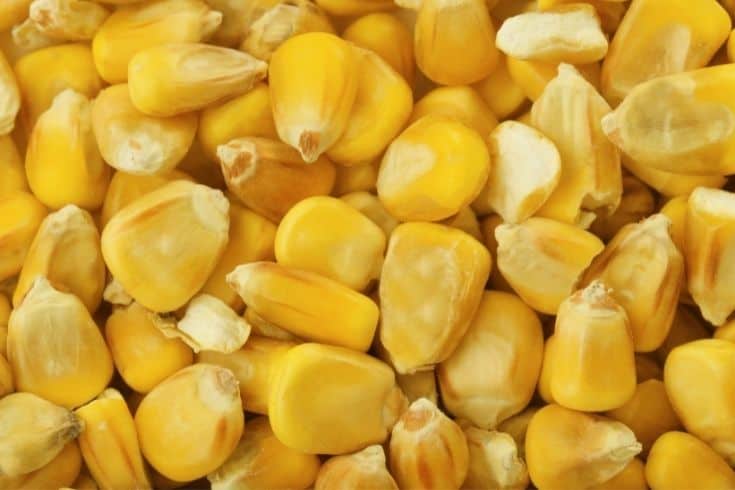
Corn makes excellent food for guppies since it’s packed with minerals and vitamins. To prevent waste, we recommend using unseasoned frozen corn so that you can pick one individual kernel, thaw it, and offer it to your fish.
Green Beans
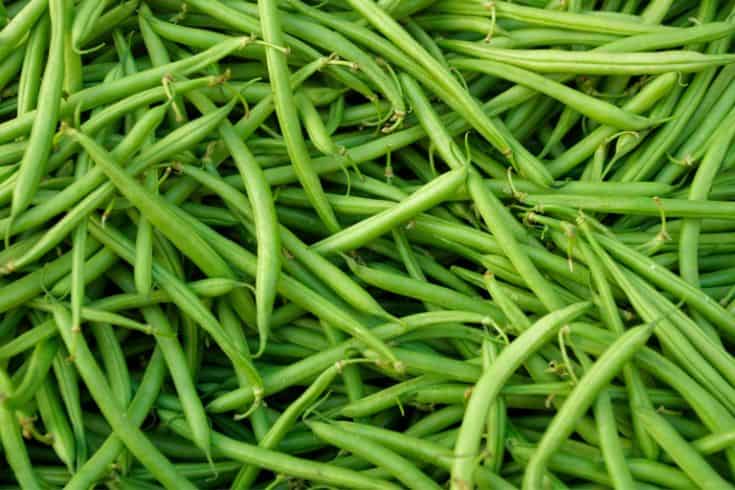
Fish keepers often feed blanched green beans to their guppies since these delicious veggies are vitamin-packed and full of fiber.
Potato
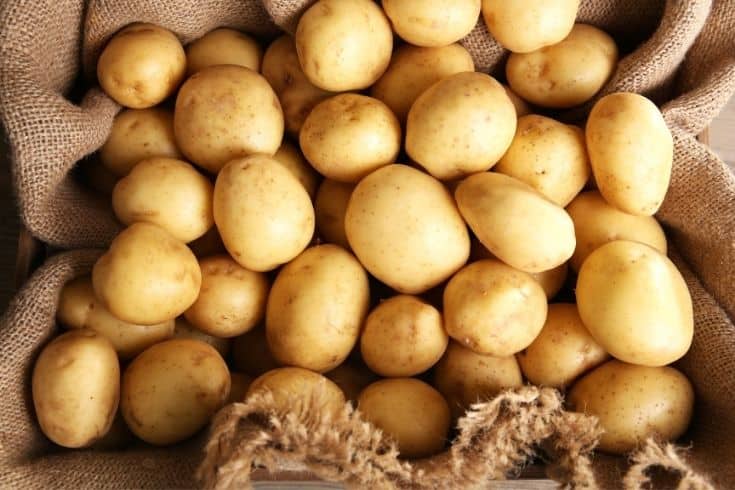
Potatoes are a good source of minerals, vitamins, fiber, and carbohydrates, and feeding cooked, unseasoned potatoes to your guppies can be beneficial.
Sweet Potato
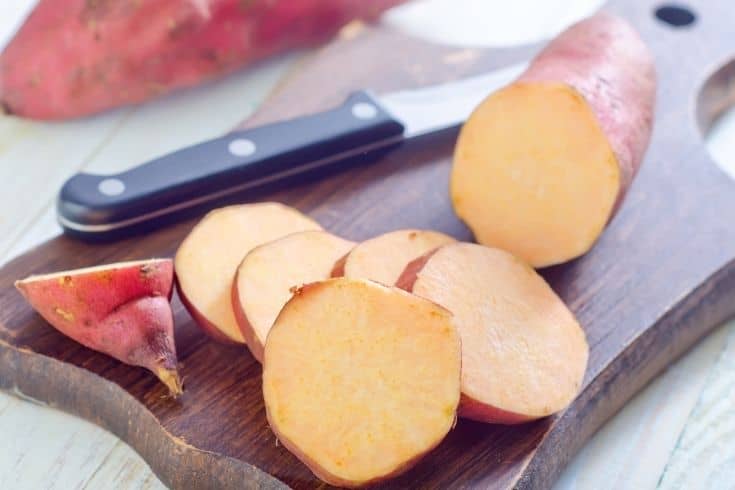
Sweet potato is also another excellent food option for your guppies, offering the same benefits as regular potatoes. Cook the potatoes and cut them into small pieces before offering them to your fish.
Carrot
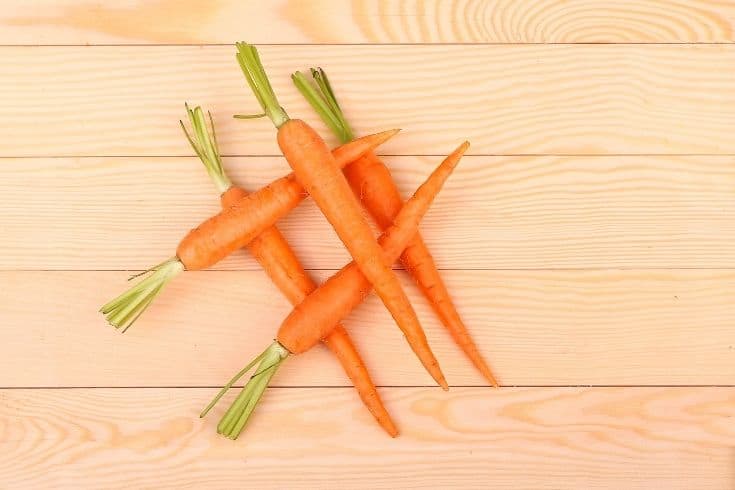
Carrots won’t improve your guppies’ eyesight, but they are packed with vitamins and minerals essential for your fish’s health.
Peel the carrots, and then slice off thin pieces before offering them to your fish.
Banana
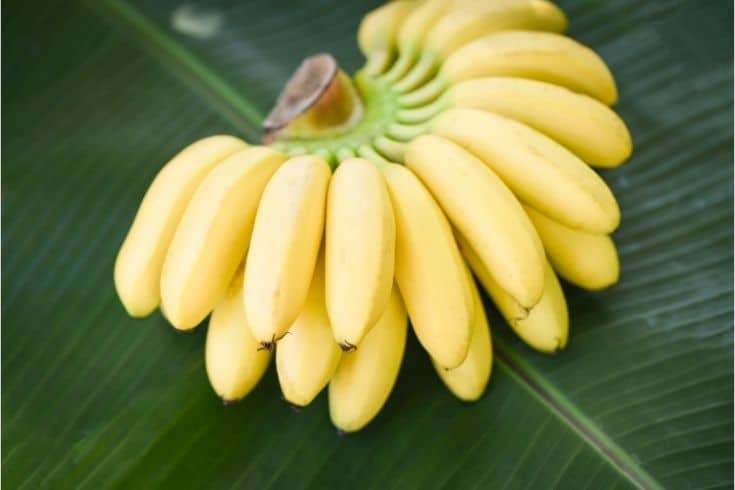
When fed in moderation, bananas can provide a healthy, nutritious food source for your guppies. Peel the banana first, then mash the fruit or offer small pieces to your fish.
Meats
Omnivorous fish eat veggies and meat, and the dense protein meat contains can be very good for your fish.
Chicken Breast
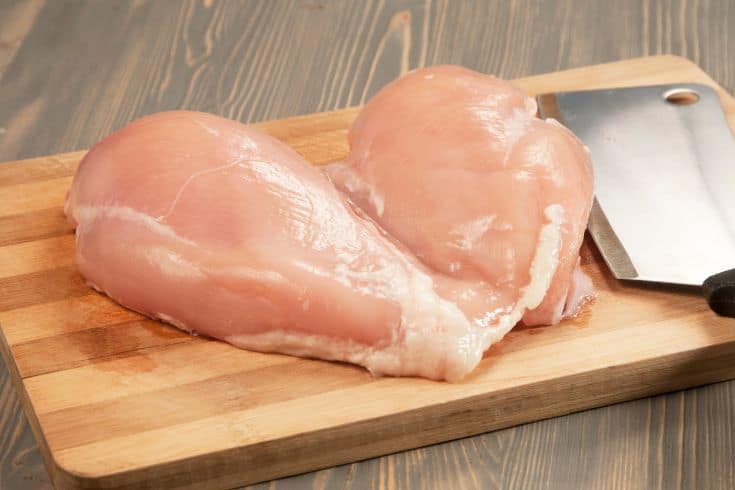
Chicken contains lots of valuable protein that’s great for your fish. Cook the chicken first, and then serve it to your fish, chopped into small pieces as an occasional treat.
Egg Yolk
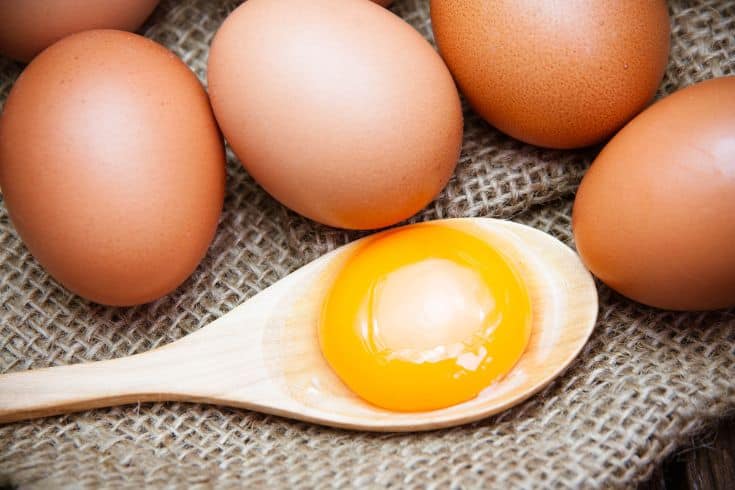
Hard-boiled egg yolk is a great protein source that many fish species appreciate. Cook the egg and remove the yolk, then mash it and offer the crumbly treat to your guppies. The main downside to feeding an egg yolk is that it disintegrates as soon as you add it to the tank, clouding the water.
Frozen/Boiled Beef Heart
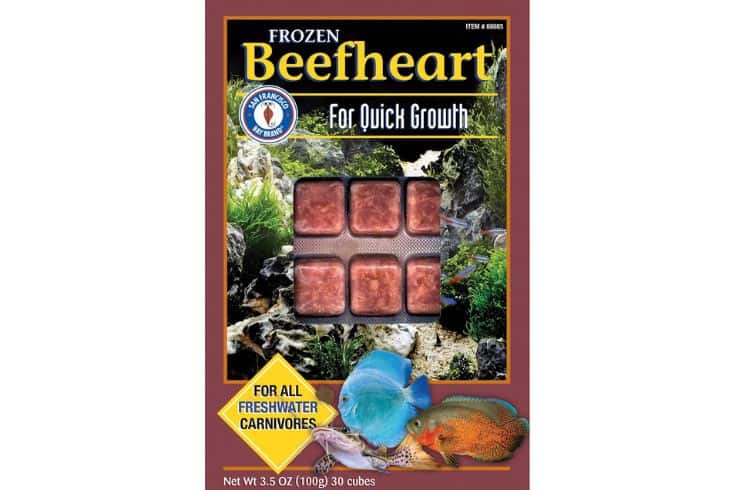
Beef heart is a rich, red meat that’s chock full of protein and nutrients, and it’s quite easy to prepare. Simply boil or fry the heart and cut it into small pieces. Don’t feel your guppies too much beef heart, as this is a fatty meat that can cause digestive problems if you offer too much of it to your fish.
Thawed Frozen Shrimp
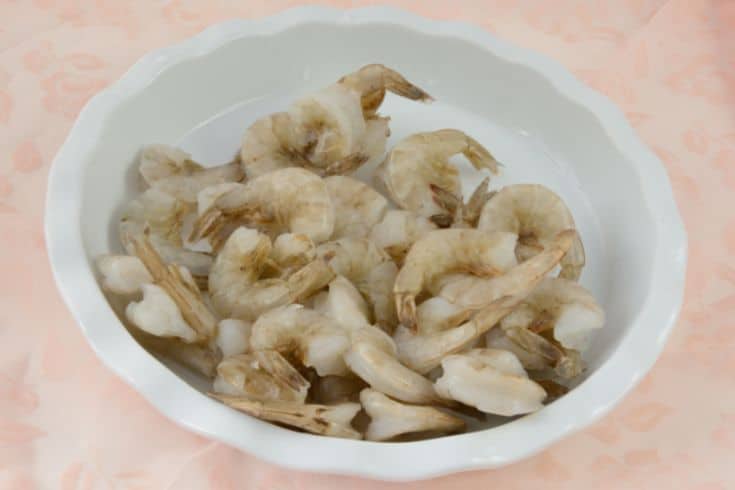
Shrimp are full of valuable protein and Omega-3 fatty acids, which are essential for a healthy guppy diet.
Simply thaw the shrimp, cut it into small pieces, and offer it as a tasty treat to your guppies.
FAQs
Here are the answers to some of the most commonly asked questions about feeding guppies.
Q: How often should guppies be fed?
A: I feed my guppies twice a day, once in the morning and again in the evening, an hour or so before lights out.
Offer the fish only what they can eat in a few minutes to prevent uneaten food from accumulating in the tank, where it could decompose and pollute the water.
Q: Do guppies live without food?
A: Guppies can survive for a surprisingly long time without food. In fact, it’s reported by some hobbyists that their fish have been fine after two whole weeks without food.
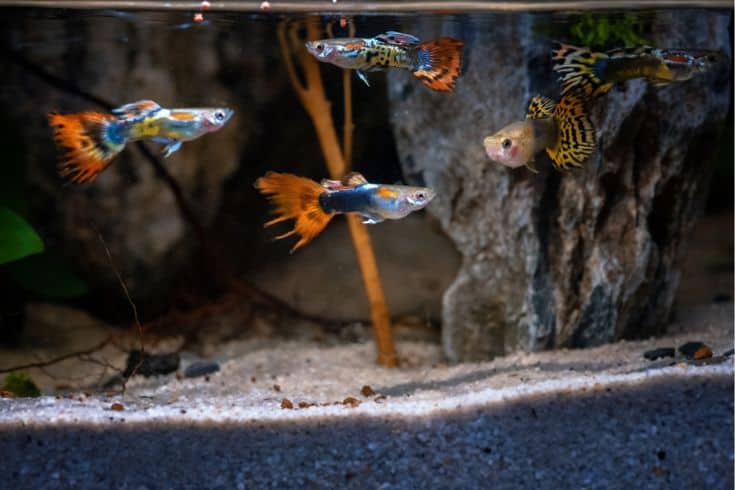
However, since guppies eat plant matter, algae, and edible detritus, it’s likely the fish have survived by grazing on what they found in the tank.
Q: Can guppies eat betta fish food?
A: In an emergency, guppies can eat betta food. However, bettas are primarily carnivorous, whereas guppies need plant matter in their diet. So, it’s best not to feed your guppies betta food regularly.
Q: Can guppies eat goldfish food?
A: Again, in a pinch, you can offer your guppies goldfish food. However, this food type doesn’t contain all the food requirements necessary to keep your guppies healthy and active.
Final Thoughts
I hope you enjoyed our guide to feeding guppies. If you did, please share the article with other guppy fanatics!
The best diet for tank-kept guppies is high-quality commercial fish food supplemented with frozen meaty foods. You can feed your guppies fresh veggies and fruits, as well as cooked meat that you might already have in your fridge. However, we recommend including human foods as an occasional treat rather than having them form most of your guppies’ diet.
What are your guppies’ favorite foods? Tell us in the comments box below!